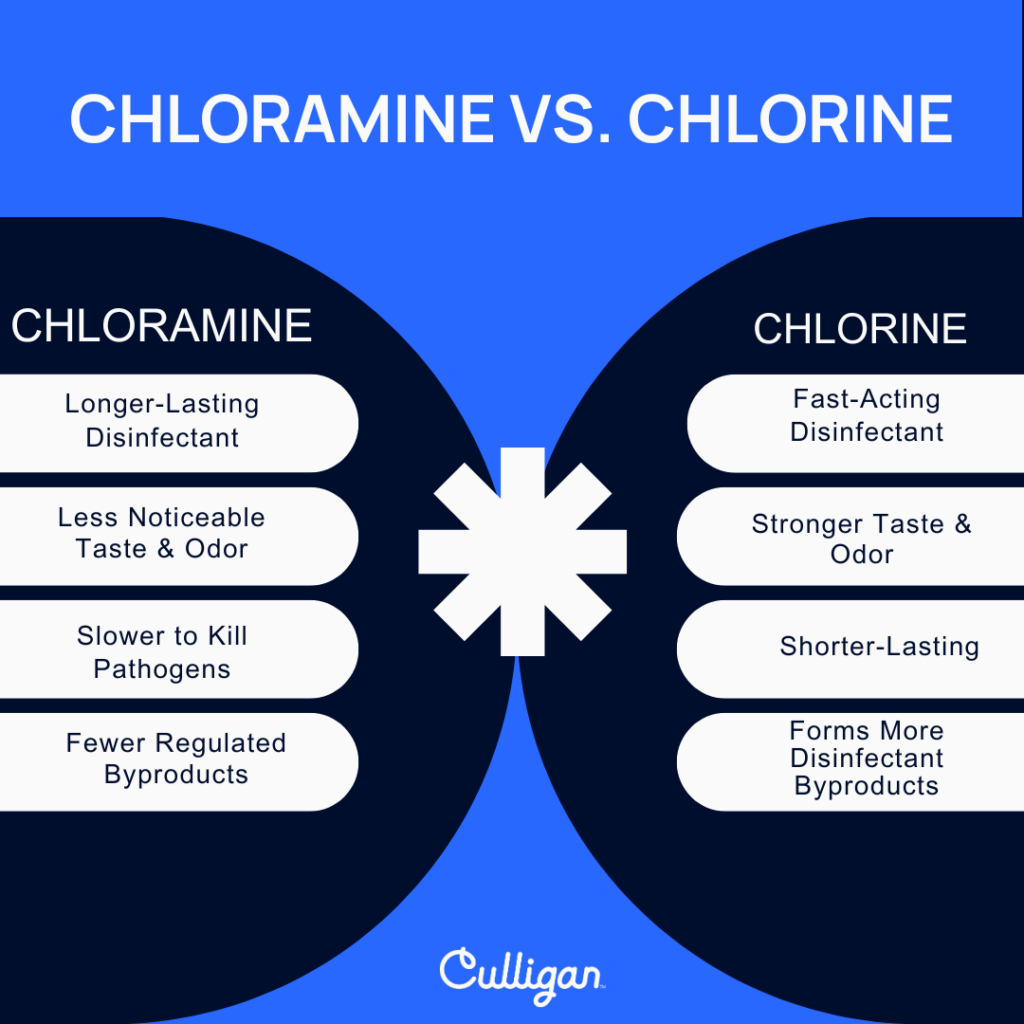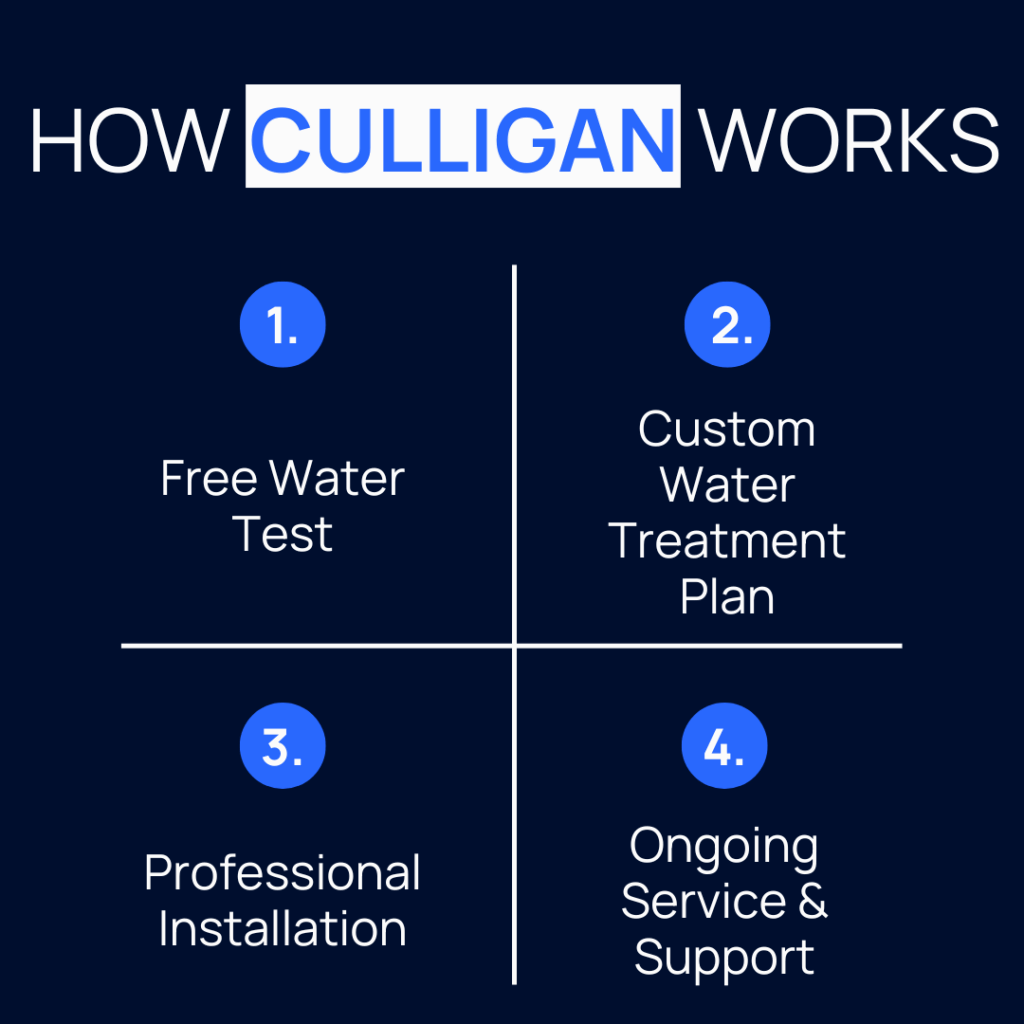Why Does Tampa Tap Water Smell?
Quick Summary: Tampa tap water can sometimes smell like bleach due to shifts in the city’s disinfection method. from chloramine to chlorine, especially during routine maintenance. While the smell is noticeable, it’s not harmful and often comes from residual chemicals or sulfur compounds in pipes. Home filtration systems like reverse osmosis or carbon filters can eliminate these odors and improve taste at the tap.
If you’ve noticed your tap water in Tampa smelling like bleach or pool water, you’re not alone, and this isn’t unsafe. Tampa Water Department uses chloramine (a mix of chlorine and ammonia) most of the time. Occasionally, they switch to straight chlorine during system maintenance. That chemical change creates a noticeable odor. Here’s what’s happening, and how to fix it.
Tampa’s Water Treatment
At the final steps of the water purification process, Tampa Water uses a combination of disinfection methods to meet both primary and secondary standards set by the United States Environmental Protection Agency. These include the use of ozone gas injection, UV light beams, and carefully monitored chemical dosing. While ozone and UV are highly effective at neutralizing bacteria and viruses, they don’t eliminate the strong taste or smell of chlorine. That’s where a point-of-use filter or reverse osmosis system can make a noticeable difference.
The chlorine levels used to disinfect tap water can be up to 4 parts per million—the same concentration found in a swimming pool.
Why Tampa’s Water Smells Stronger Sometimes
Routine maintenance often involves flushing mains and switching disinfectants. When Tampa shifts from chloramine to chlorine, residual chlorine lingers in pipes and comes through your tap. Tampa Bay Water confirms this changeover happens periodically to ensure full sterilization.
Chloramine vs. Chlorine: What’s the Difference

- Chloramine combines chlorine with ammonia. Tamps Water Department adds ammonia to chlorine to extend its disinfecting power and make the smell less intense.
- Chlorine, plain and powerful, gets used briefly during pipeline maintenance or emergencies. It leaves a strong, bleach-like smell—what most residents describe as a “chlorine smell” .
Both chloramine and chlorine are regulated under EPA guidelines and fall under the category of primary standards, which ensure water safety by limiting contaminants linked to health effects. Tampa’s treatment plant uses chemical feed systems and chemical analyzers to maintain proper disinfectant levels during every phase of the treatment process.
What Causes the Rotten Egg Smell in Tampa’s Water?
Most of Tampa’s water doesn’t have a sulfur smell, but some neighborhoods experience it temporarily—especially after pipeline work or when pulling from the Floridan Aquifer. The smell usually comes from hydrogen sulfide, a gas that smells like rotten eggs. It can form naturally in groundwater or inside plumbing systems, especially if there’s stagnant water in internal plumbing or water heaters.
Is Tampa Tap Water Safe To Drink?
Yes. Both chloramine and chlorine are approved by the EPA to kill pathogens like E. coli and cholera. Tampa Bay Water consistently meets all state and federal safety standards. In 2024, the utility collected over 3,600 samples and ran more than 64,000 tests. Results showed full compliance with all regulated limits according to Tampa Bay Water. The Environmental Working Group (EWG) also confirms that Tampa’s water occasionally exceeds federal thresholds for certain compounds.
Can Contaminants be Causing Tampa’s Tap Water to Smell?
The Environmental Working Group lists a few detected chemicals that exceed its own health guidelines, though they remain within federal limits:
- Arsenic at 0.1 ppb (25× EWG’s guideline of 0.004 ppb)
- Bromate, a byproduct from disinfection, at 2.54 ppb (25× EWG’s guideline of 0.1 ppb)
- Bromodichloromethane and haloacetic acids, both byproducts of chlorination, exceed EWG’s health goals but stay within federal enforcement limits.
EWG advises filtration to minimize exposure—but overall, federally regulated limits required for tap water are always met.
The city works closely with the Florida Department of Health and city officials to monitor emerging risks like sewage pollution and unregulated contaminants. The treatment system includes regular testing and response protocols to minimize public exposure. Still, residual dissolved minerals and disinfectant byproducts can linger by the time water reaches kitchen faucets and bathroom faucets, especially if older service lines or internal plumbing are in place.
Average Hardness: Why Tampa Water Is So “Hard”
Tampa tap water is considered “hard.” The 2024 Consumer Confidence Report from Tampa shows an average total hardness of 185 mg/L, which translates to 10.8 grains per gallon. Another local source reports 201 mg/L (11.7 gpg) in 2023. Hard water doesn’t harm you—it just leaves scale on pipes, dulls dishes, and reduces soap’s effectiveness.
How Culligan Can Help You Enjoy Smell-Free, Softer Water
Installing a system at home filters out disinfectants, reduces hard minerals, and tackles byproducts. That improves taste, helps skin and hair, and prolongs your appliances.
Whole-home softener + drinking water filter: This setup tackles chlorine/chloramine, hardness, and trace contaminants, including arsenic and bromate.
Reverse Osmosis (RO) under the sink: Offers maximum protection—removes disinfection byproducts like bromate, chloroform, and haloacetic acids.

How Culligan Works
- Free in-home water test: Culligan assesses your hardness, chlorine levels, pH, and EWG-flagged chemicals.
- Custom system proposal: Based on your test, they recommend the ideal combination of softening, carbon filtration, and reverse osmosis.
- Professional installation & tuning: Ensures optimal water flow and minimal maintenance.
- Ongoing service: Includes filter and resin replacement, plus performance checks to keep your water tasting great year-round.
6 Tips to Minimize Smell Right Now
- Let the tap run until chlorine odor disappears—usually under a minute.
- Fill a pitcher and chill it: Some chlorine dissipates with time and cold.
- Use a carbon filter on faucet or pitcher: effective and low-cost.
- Try a shower filter if the smell affects your skin or hair.
- Maintain plumbing: Clean aerators and run systems weekly to avoid buildup.
- Invest in a softener/filter combo: It removes hard minerals and improves chlorine taste and smell.
